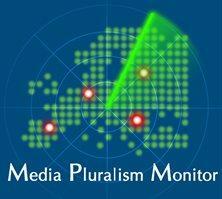
Greece - Media Pluralism Monitor 2014
MPM 2014 divides the risks for media pluralism into three categories, encompassing respectively legal, economic and socio-political aspects. In Greece, significant risks to media pluralism are detected in legal and socio-political realms.
A medium level of risk is identified with regard to the legal protection. Interpretive problems regarding national security laws and narrow definition of the rules on blasphemy are regarded as posing significant risks for media pluralism. Systematic non-compliance with the relevant rules is recorded in the field of the right to access to information.
The independence of the relevant national authorities is regarded as weak, and excessive political control over mainstream media constitutes a source of risk. Moreover, the Greek media law does not contain any specific provisions on minority or community media. In fact, there appears to be no particular policy strategy for minority media or community media.
The economic dimension is characterized by high ownership concentration in television, radio and Internet Service Providers and a medium ownership concentration in newspapers. High risk to media pluralism is also demonstrated by scarce independence and ownership of news agencies, as there is only one Greek-based national news agency.
Media pluralism is mostly threatened in Greece by the high concentration of media power and the underlying interdependence between political, economic and media elites, along with the systematic evidence that media entrepreneurs intervene in their employees work. The lack of readily available and reliable statistical data on state advertising as a means of political control over media, prevents the proper evaluation of this indicator.
Regarding socio-political indicators, MPM 2014 notes how Greek media are deeply politically biased. Connections of media owners with political elites in the country have formed the object of substantive investigation by journalists and media activists and the issue needs further exploration.
Tags: Greece Media pluralism Access to information Media ownership Media fundingThe content of this article can be used according to the terms of Creative Commons: Attribution-NonCommercial 4.0 International (CC BY-NC 4.0) . To do so use the the wording "this article was originally published on the Resource Centre on Media Freedom in Europe" including a direct active link to the original article page.

